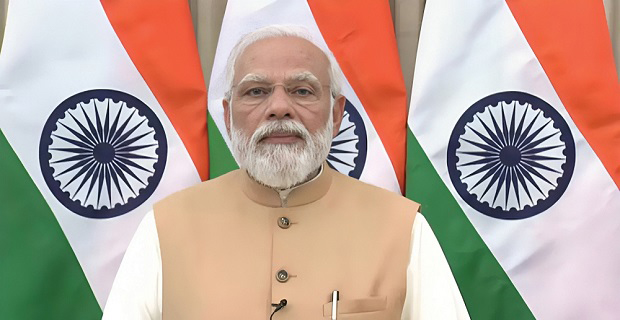MANAGING A NATION OF DIVERSITIES
New Delhi: The thrust of governance in the present regime is to push India towards self-sufficiency in food, industrial production, defence, security and technology applications.
Prime Minister Narendra Modi gave the perceptive call for ‘vocal for local’ on one hand and supported an outreach to the best technology available anywhere in the world for economic advancement, on the other. While he showed great clarity about the national objectives and the pathways for achieving them, his remarkable contribution is in ensuring that the projects initiated for this purpose were executed with a new level of efficiency.
Individual responsibility in the bureaucracy has been defined, the framework of inter-departmental coordination has been fixed and the accountability of Ministers heading the Ministry or the Department concerned has been made transparent -- all of this producing a huge impact on governance eliminating a substantive measure of the gap between policy and its implementation.
It has been established that if the political executive governing the nation has the honesty of purpose and the political will, it could go beyond the copybook rules of administration to create new benchmarks of governance and delivery for the people.
Prime Minister Modi has shown a great dedication to national interests and willingness to put in hard work and if his performance earned him high popular ratings, this was natural -- it should be remembered that the Indian voter is a shrewd judge of the merits of rulers governing the country.
Experts have talked of various management practices and one of these is termed the ‘paternal, nurtural theory’ -- said to be in line with the Indian ethos. It believes in ‘participative management’, suggests that the ‘senior’ is also a mentor and an ‘elder’, and advocates the idea that the boss-subordinate relationship extends beyond the workplace -- implying that the boss ought to have some idea of the family concerns of the subordinate to understand if any personal distractions were coming in the way of the latter’s optimal performance and deal with them in a helpful manner.
The bureaucratic traditions left behind by the colonial masters made for a highly impersonal setting at the workplace that left no ground for the exercise of ‘emotional intelligence’ -- which is a humane concept discovered only now. Prime Minister Modi’s style of governance seemed to reflect some of these new approach points. Its view of vertical hierarchy in administration placed a certain level of accountability on the senior for any ‘failure’ of the person below and thus restored the importance of ‘supervision’ that had ceased to operate in an effective way in the earlier years.











Comments.